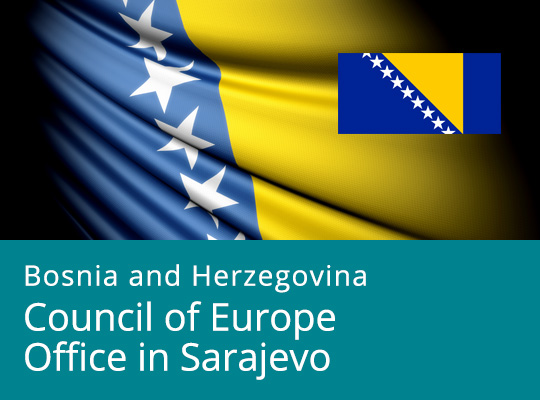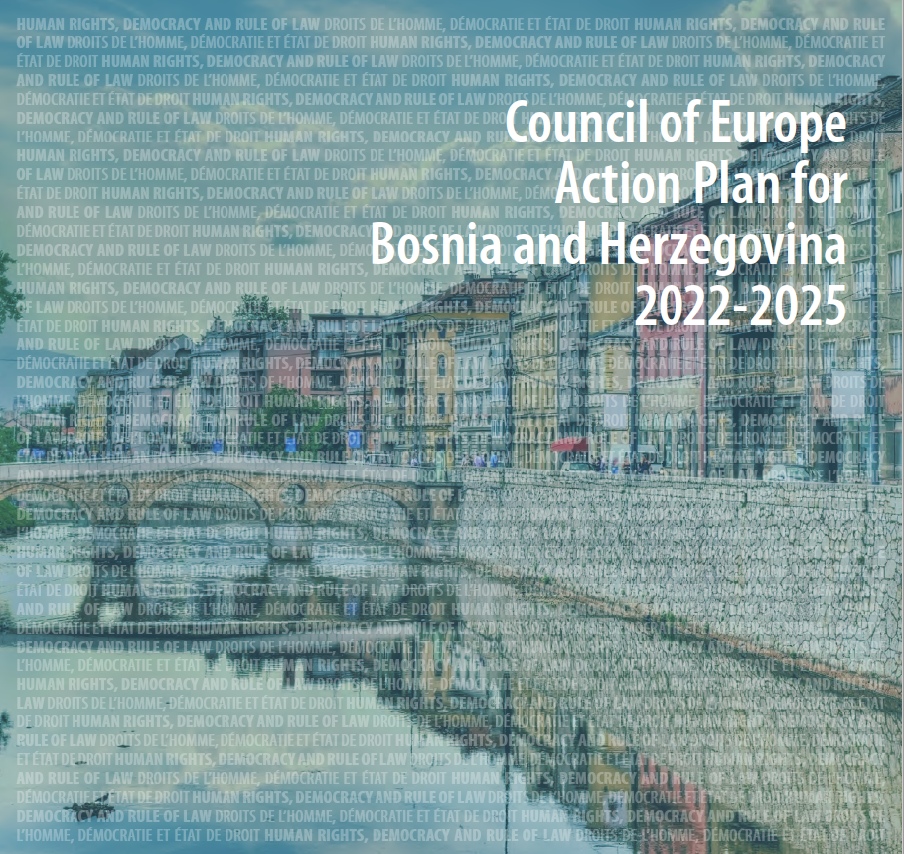We all play a key role in promoting mutual respect and inclusion, thus supporting the building of societies that foster respect for the rights and dignity of every person, regardless of the ethnicity, gender, religion or belief or any other identity. The European Union (EU) has built its foundations on the values of respect for human dignity, democracy, freedom, equality, the rule of law and respect for human rights. An integral part of European values are the insistence on pluralism, tolerance, non-discrimination and solidarity. In just a half of century, the EU has become an important factor at all levels of the global community.
Accordingly, the EU and the Council of Europe support projects that focus on strengthening its primary principles in countries seeking to be part of the Union. Activities that are part of the project of education of primary and secondary school students from the Sarajevo municipalities of Centar and Stari Grad on hate speech, anti-Semitism, Islamophobia, xenophobia, led by the Jewish Cultural, Educational and Humanitarian Society "La Benevolencia", with the support of the European Union and the Council of Europe, and in co-operation with the TPO Foundation, contribute to the continuous work on the integration of Bosnia and Herzegovina, not only in the EU, but also in modern society free from all forms of exclusion and intolerance. Of vital importance for the future of Europe is the work to foster a culture of inclusive tolerance and respect. The Office for Democratic Institutions and Human Rights (ODIHR), the European Union Agency for Fundamental Rights (FRA) and the European Commission against Racism and Intolerance (ECRI) play an active role in combating hate speech, hate crimes and other forms of intolerance, and projects that educate society on these topics are of great importance for them and for the process of integration of Bosnia and Herzegovina into the EU.
After the first topic "Hate speech and consequences", the lecturers talked with students about anti-Semitism, Islamophobia and xenophobia and ways in which we can/must fight against their representation in public and private space. From this it has become clearly obvious how important is the role of education in preventing discrimination and hate speech. It has been found that hate speech calling for violence, especially on the Internet, is a growing problem, where it is considered the main way to express anti-Semitism, hatred of Muslims, and other forms of racism and xenophobia.
The education system has proven as a crucial in trying to combat intolerance and emphasise the value of respect for others because it reaches all children from an early age. However, it was found that there is a great lack in knowledge on certain topics, and that there is generally no certain critical attitude towards the mentioned concepts and phenomena. After a series of lectures in primary and secondary schools, professor of gender sciences Zilka Spahić Šiljak pointed out: “In secondary schools, in gymnasiums, it can be seen that teachers work with children and that children are ready for dialogue and discussion on sensitive topics of discrimination. However, very little is known about the topics of anti-Semitism, xenophobia and Islamophobia, which is an indicator that it is necessary to include these topics in the curriculum in order to raise awareness of these issues among young people. The situation is different in primary schools. In addition to the fact that children know almost nothing about these topics, the general climate is such that the attention of students is very low, that they are not taught to express their opinions and that they mostly react with great emotions. What surprised me was that children aged 13 and 14 are full of prejudices, that they were traumatised by family losses in the past war and that under the influence of ethno-national narratives they are unable to think critically about the discrimination to which other people are exposed, not just them and their families".
All forms of racism and hatred are a common problem of the whole society, and it is considered that the common process of adjustment is crucial in order to be able to fully contribute to the society in which they live.

“If we don’t mention that there was the Holocaust, people would forget there was the Holocaust. We have never talked about these topics to such an extent, neither in education nor in the family. Perhaps many things would have been different if some things had been admitted in time, and if we had called them by their real names. If you do not explain to anyone what happened here, that people were killed and persecuted just because they were not the dominant religion or nationality, intolerance will continue to grow”, said Eli Tauber, advisor for culture and religion of the Jewish community in BiH, after a lecture at the First Bosniak Gymnasium.
The speakers shared worrying data on discrimination based on religion and ethnicity and agreed that BiH society as a whole is caught up in a very slow process of recognising and acknowledging its radical views.
“These workshops showed that it is necessary to work especially with children and teachers in primary schools, in order to reduce and eliminate the stereotypes and prejudices on the basis of which xenophobic attitudes are created. Life in monoethnic and monocultural environments does not give children and young people the opportunity to develop relationships of understanding for true dialogue, and that is why it is important to open the doors of these closed environments in order to have new ideas to refresh young minds and open new horizons of knowledge”, emphasises Spahić-Šiljak.
This certainly means building inclusive communities where it is necessary for each of us to contribute to a pluralistic and tolerant society based on common values. Education is key in preventing anti-Semitism, hate speech against Muslims and other forms of intolerance. It is extremely important to establish the idea of coexistence at an early age, according to which then students and teaching staff will then behave without prejudice, by developing creative ideas that will bring children closer to sensitive topics, and help them strengthen their critical questioning skills.
Association “La Benevolencija” is a beneficiary of the joint programme of the European Union and the Council of Europe "Horizontal Facility for the Western Balkans and Turkey 2019-2022". The views expressed in this text are the responsibility of the author and do not represent the official views of the European Union and the Council of Europe.
Written by: Ivana Golijanin




